During the time period that Sarah Winchester lived in San Jose, the Santa Clara Valley was a bowl of orchards, famous nationwide for its fruit, particularly apricots and plums. Almonds were a big crop as well. Winchester managed an orchard that was part of the estate, and sold apricots and prunes under her own orchard label, SPW Fruits.
This crank controlled the heat that went into the drying room.
Traditional lug boxes
Usually, prunes (which are just dried plums) and apricots were sun-dried, after being dipped in a mild lye mixture to get the skins to split. Sometimes, though, growers would speed up the process by mechanically drying them. This was a lot of work and could only be done in small batches. Winchester had a drying room on her property, although it wasn’t used very often.
Our guide on the “behind the scenes” tour, which demonstrated the running of the estate, warned us that the cherries were not ripe yet. The crows and small birds agreed with him; there was only one lonely, half-pecked cherry on the ground by the drying room.
The hippocampus fountain. And there I was, thinking hippocampus was a part of the human brain, and not a half-horse half-fish creature.
The cherub fountain
In the front of the mansion, the garden holds three fountains. I think there are, or were, a couple more in the back. When Winchester lived here, the front garden was less open, blocked off from the road by a tall hedge. Winchester’s preferred garden, based on photographs, was a little less formal and a little more natural-looking.
From the side. The two figures on the far left there are Grecian goddesses. One is Ceres; I can’t remember who the other one is — she looks kind of like a 1920s flapper
I enjoy the formal garden though.
The statue of the deer and the native hunter might be one of the things that sparked the theory/rumor that Winchester was atoning for the deaths of Native Americans at the hands of Winchester rifles. Looking at it, it seems to me that she just liked the statue, the same way she liked the statues of the Greek goddesses that are now at the front of the house.
In addition to three conservatories in the house, Winchester had a beautiful greenhouse and a team of gardeners that maintained her garden. Here, as in the house, she utilized ingenious ways to recycle and reuse water. Unlike some of her San Jose neighbors, Winchester seemed sensitive to earthquakes and the periodic northern California droughts. She prepared for both. If Winchester had not been a four-foot-ten-inch woman but a man, I think history would have celebrated her inventiveness and imagination.

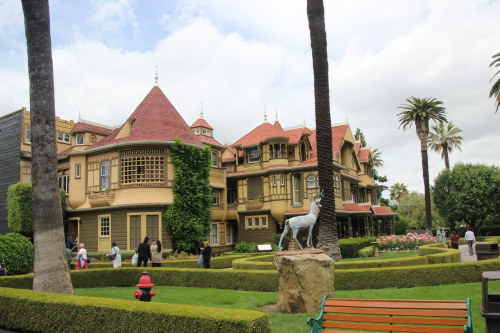
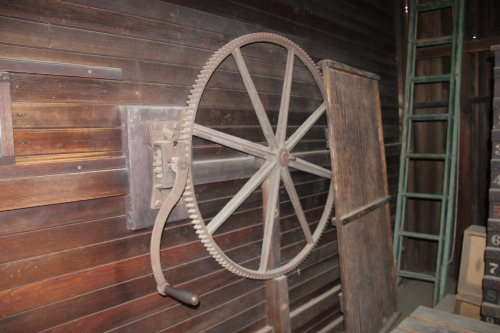
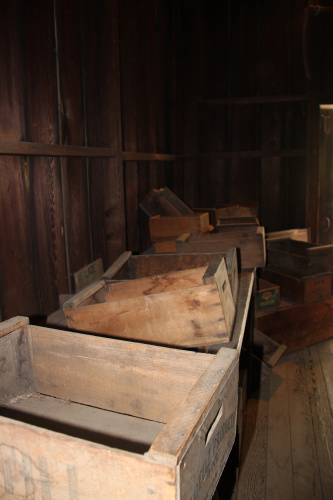
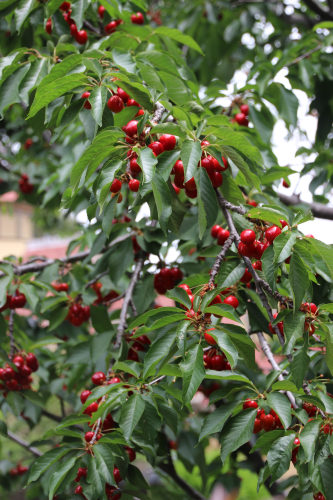
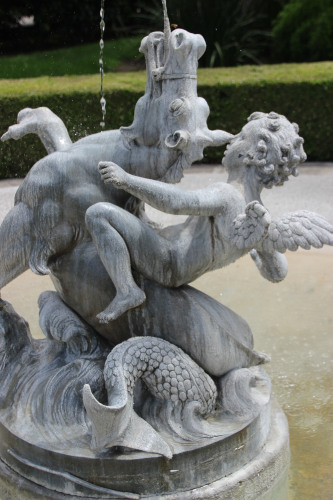
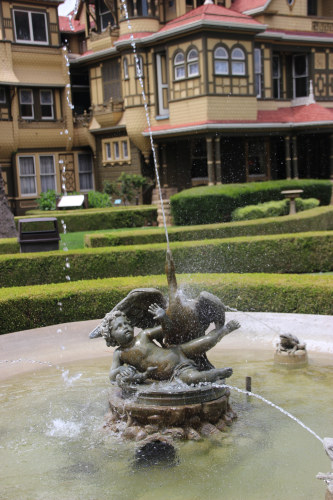
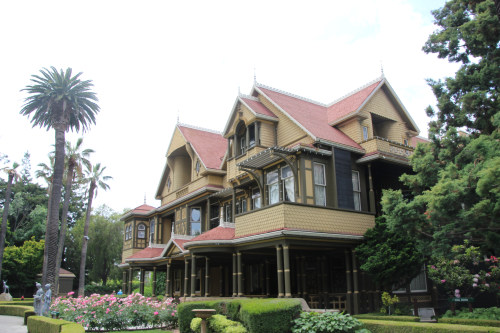
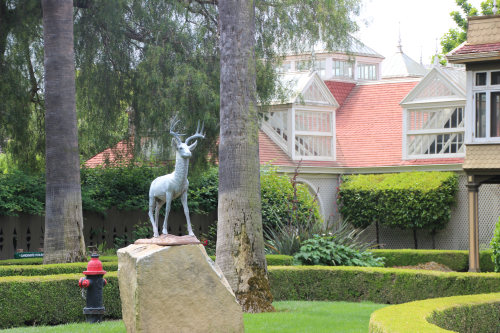
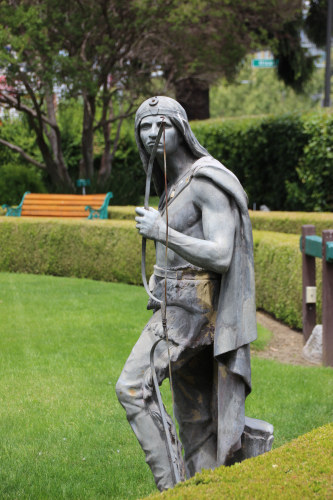
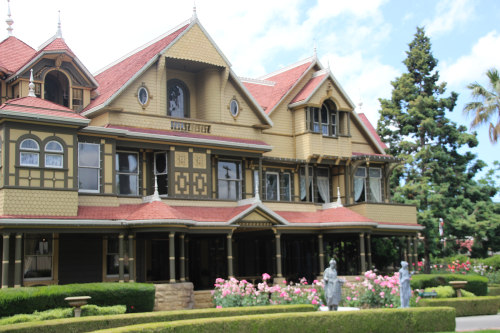
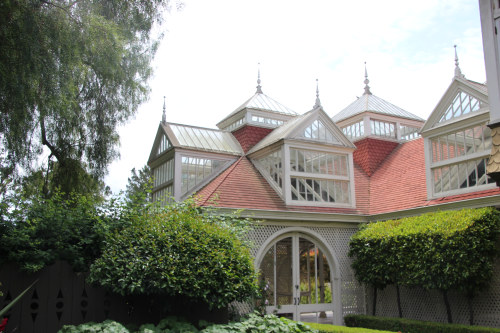
Marion – looks like you had a wonderful day at the Winchester House. Thanks for sharing your beautiful pictures! Karen
Thanks for your recommendations; they were great. I didn’t get to Santana Row but it looks wonderful. That might be something for another trip.